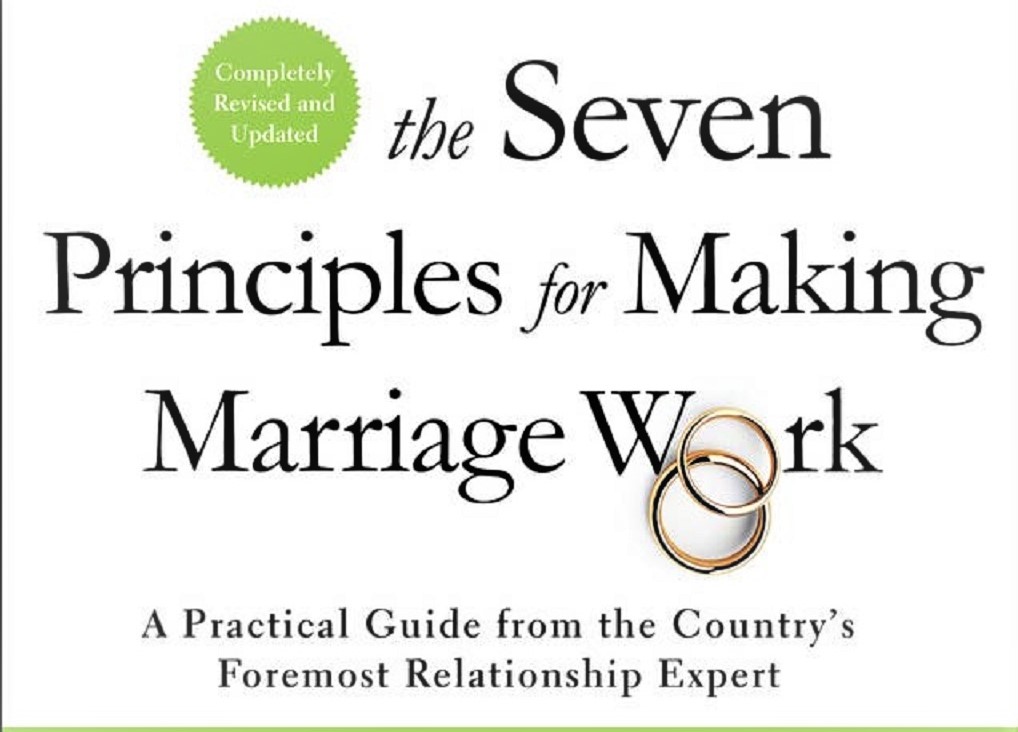The Seven Principles for Making Marriage Work

Marriage can be challenging. Let’s face it – disagreements happen no matter how much you love your partner. My spouse and I have had our fair share of conflicts. But we’ve learned how to work through them and become more assertive on the other side. After attending a weekend workshop by acclaimed marriage researcher Dr. John Gottman, I discovered the seven principles for making marriage work that have helped us transform our relationship. Gottman’s principles provide practical, research-based tools for building a healthy, happy marriage that endures. I want to share how applying these principles has benefited my marriage and how they can also help yours.
Principle 1: Enhance Your Love Maps
“Love maps” refers to how well you know your partner’s inner world – their hopes, dreams, fears, goals, and needs. Gottman found couples with detailed love maps of each other are better equipped to meet each other’s needs and prevent divorces.
Early in our marriage, my spouse and I didn’t pay much attention to updating our love maps. We assumed we knew everything about each other. But over time, people change. The more questions I asked and listened to, the more I uncovered.
Now, we make it a habit to check in frequently about the minor details and significant developments in our lives. I’m constantly learning new things about my partner, which keeps our relationship fresh.
Make a weekly date where you explore new subjects to expand your love maps. Discuss your visions for the future, both individually and as a couple. When you drift apart, turn toward each other and update your maps.
Principle 2: Nurture Your Fondness and Admiration
Happy couples have a habit of mind where they view their partner positively, even when times get tough. Gottman calls this maintaining a culture of appreciation and respect in the relationship.
When my spouse and I bicker, sometimes I get caught up in momentary frustration and attack their character – “You’re so stubborn!” This never ends well.
It works better to remind myself of everything I admire about them, like their thoughtfulness and intelligence. I express how much they mean to me. This resets the tone and prevents the conflict from escalating into lasting damage.
Please list the qualities you admire in your partner, and tell them often. Let the good outweigh the bad. Establish the habit of small acts of kindness, respect, and gratitude. A little fondness and admiration goes a long way.
Principle 3: Turn Towards Each Other
Daily stressors can cause partners to turn away from each other, potentially damaging the relationship over time. Gottman encourages couples to turn toward each other during minor moments and conflict.
When my partner shares an experience that excites them, even if I don’t find it very interesting, I try to turn towards them. I’ll stop what I’m doing and give them my full attention. Something as small as a shoulder squeeze helps them know I care.
During disagreements, taking a break to cool down keeps us from turning away. Then, we can discuss the issue while remaining engaged, facing each other on the same team.
Make your relationship a priority in small, everyday moments. Set aside distractions to turn toward your partner when they need you. Even subtle signals of warmth mean, “Our relationship matters to me.”
Principle 4: Let Your Partner Influence You
Influence goes hand-in-hand with turning toward your partner. When one spouse dismisses the opinions and desires of the other, it leads to unhappiness and instability in the relationship.
I used to resist my partner’s ideas for how to manage our finances. But when I started listening to their perspective with an open mind, I realized they had some valid points.
Now, we decide on financial matters together, combining our ideas into solutions that satisfy us. Sharing influence deepens our trust and connection. I feel heard and valued.
Be open to allowing your partner to affect your thinking and actions. Accept their input – treat each other as respected equals. Welcome their influence, even if you don’t agree on everything.
Principle 5: Solve Your Solvable Problems
All couples have perpetual conflicts that may seem impossible to resolve. However, Gottman found that dealing effectively with these solvable problems prevented minor issues from becoming big later.
My spouse and I argued endlessly about how to load the dishwasher most efficiently. It was silly, but we both insisted that our method was correct.
We learned to compromise by taking turns – we switch off who gets to arrange the dishes each night. This allows us both to feel satisfied. When little conflicts come up, we handle them early before things blow out of proportion.
Determine which problems have viable solutions, then tackle them head-on to avoid letting them become severe. Be willing to compromise. If an issue arises repeatedly, mutually agree on practical ways to deal with it.
Principle 6: Overcome Gridlock

Gridlocked issues arise from perpetual, unsolvable differences that make couples feel hopeless about the relationship. Gottman’s research shows successful couples don’t gridlock over even the touchiest subjects.
A hot-button topic in my marriage has always been how strictly to manage our kids’ schedules. I prioritize structure and planning; my partner values freedom and spontaneity. For years, this caused tension between us.
We learned to stop gridlocking over rigid definitions of “right” and “wrong.” Instead, we communicate mutual understanding – I appreciate my partner’s desire to let our kids enjoy their childhood; my partner recognizes my need to feel in control. We took the gridlock off the table.
Don’t force rigid expectations of who is “right.” Seek to understand the valid meanings underlying both of your stances. Express your needs without dismissing your partner’s. Removing gridlock prevents irreparable harm.
Principle 7: Create Shared Meaning
Happy spouses maintain a sense of shared purpose and meaning. They create rituals, goals, and symbols representing their relationship ideals and values.
My partner and I went through a rough patch when we struggled to connect over meaningful activities. We got stuck in routines of work, chores, and childcare logistics.
To create shared meaning, we set aside time for simple pleasures like walking, playing board games, and reading together in the evenings. We also made it a tradition to stargaze on clear nights – reminding us of our shared sense of wonder.
Make your marriage a priority by nurturing a positive perspective of your relationship. Establish meaningful rituals that fulfill the core values you both share. Keep your sights set high.
Frequently Asked Questions
Q: How can we start practicing the seven principles if my spouse isn’t on board?
A: Begin applying the principles yourself, leading by example. As your spouse notices positive changes in you and your interactions, it can motivate them to get on board. But don’t force it; change takes time. Focus on creating goodwill and a culture of appreciation in the relationship.
Q: What if severe issues like substance abuse or infidelity exist in the marriage?
A: In those cases, seek professional guidance as a starting point. Therapists can help establish whether the issues are resolvable or if the problems run deeper, possibly requiring painful decisions. The principles can complement professional counseling.
Q: How long before we start to see positive changes from the seven principles?
A: It depends on the state of your current marriage and how consistently you apply the principles. Minor improvements may happen quickly, but transforming an unhealthy relationship takes significant time and work. Expect setbacks along the way. The key is persistence.
Q: Which principle is the most important to start with?
A: Enhancing your love maps often lays the groundwork for success with the other principles. Understanding each other’s inner worlds prevents problems and provides insight into applying the rest of the principles most effectively.
Q: What if my spouse refuses counseling or workshops?
A: You can still study the principles independently through books and online resources. Implement the ideas in your daily interactions with your partner. Lead by example in creating positive changes without forcing your spouse to participate in activities they don’t want to do. Over time, your perseverance can positively influence them.
In Conclusion
Research shows the principles described by Dr. Gottman enable couples to build solid and fulfilling marriages. My spouse and I continue to apply these principles in our relationship. It takes dedication and persistence, but the payoff is immeasurable. When contemplating the best gift for marriage, consider that a thoughtful and personalized gesture, reflecting the principles of enhancing love maps, nurturing fondness and admiration, turning toward each other, sharing influence, and resolving solvable problems, can contribute to fostering a happy marriage with lifelong benefits for you, your partner, and your entire family. overcoming gridlock, and creating shared meaning in positive ways, you invest in the most critical relationship in your life. I encourage you to learn more about the seven principles. Read Dr. Gottman’s book. Attend a couples workshop or online training. Use these proven tools to achieve lasting satisfaction in your marriage. With some mutual understanding and effort, you can make your good marriage better and your better marriage great. It’s worth it!












